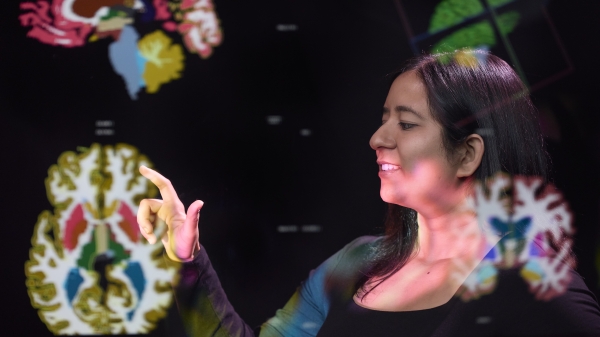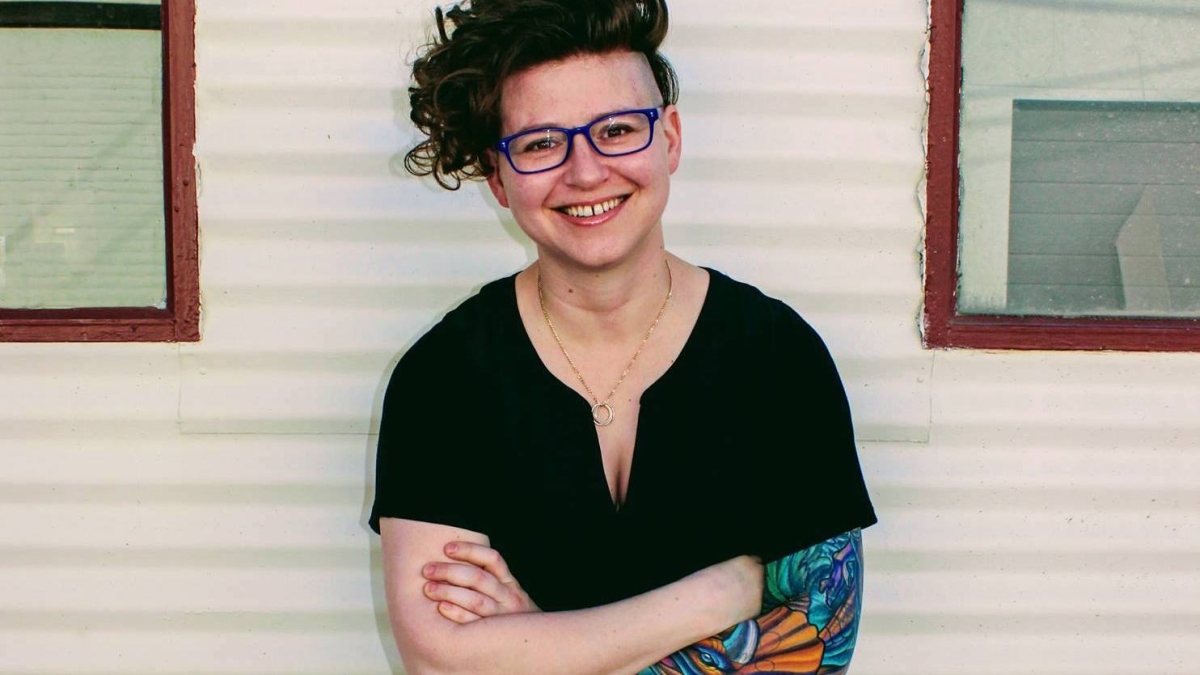When a teenaged Nikki Stevens built her first website, she did not foresee the barriers she would encounter in pursuit of her newfound passion. Now a doctoral candidate with Arizona State University's School for the Future of Innovation in Society, she has founded two organizations, works a lucrative career as a technical architect and freelance software engineer and has been selected as a finalist for Red Hat’s “Women in Open Source Award.”
Cast your vote for Nikki here. (Voting closes on Feb. 21 at 3 p.m.)
Stevens’ accomplishments speak to a tenacious grit that has buoyed her talent and a resolute determination to succeed as a woman in the primarily male-dominated tech space. She grew to realize that extra time, effort and creative techniques were required to get work beyond those demanded of male counterparts.
“I created my own website when I was 15,” she said. “But I had to pretend to be older, and I had to pretend to be male most of the time online because I realized pretty fast that if I was going to be paid to do work, I had to kind of suck it up.”
Stevens’ experience is not far off from accounts of other women, non-binary and genderqueer people who struggle to prove themselves amongst their predominantly white male peers.
“I can say I’ve spent time working longer hours, doing more work and doing better work than my peers, in order to get roughly the same treatment,” Stevens said. “And I’m not sure that my time doing that is over, in academia as well as in tech.”
Enter the Women in Open Source award, which was created in response to the low percentage of women in the open source"Open source" refers to computer software for which the copyright-holder allows anyone to modify, distribute, use or study the source code for any purpose. community — only 11 percent of contributors to be exact, according to Red Hat’s website. The award seeks to recognize exceptional women in tech with the hope that it can show young women and girls who have an interest in the field they don’t have to be intimidated and they can achieve success despite the prevailing impression that open source is a man’s world.
“Representation matters. We want to elevate women," Stevens said. "Queer women, women of color, nonbinary and genderqueer people too, we want to elevate everyone who is doing good work. We want those who want to enter the field to look and see people who look like them.”
Stevens also strives to make the open-source community more inclusive. She was inspired to take action after attending tech conventions and realizing that she was consistently staring out into crowds of white male faces. She decided to do a small presentation titled “Calling All White Men.”
She was not expecting what came next.
“It was a little too 'nail on the head' for some people. I got a really aggressive reaction, and that was really powerful,” she said. "I got a ton of harassment for it. So then I was like, 'Okay, we really need to talk about this if just suggesting that we have a problem is creating such a strong backlash.'”
Following Drupal Con in New Orleans (a destination event for website programmers), she formed the Drupal Diversity and Inclusion Group (DD&I) to help combat negative sentiments and increase the programming community’s diversity. The group will come under new leadership this year, and Stevens said she is excited to see the group grow.
Stevens is also involved with the Open Demographics Initiative, which is focused on improving language used in surveying people about gender, race, ethnicity, sexual orientation and other information.
“They ask these questions in ways that are really exclusionary," she said. "So I was like, 'Well, why isn’t there a W3C for these questions? And why aren’t the people who are being questioned involved in the questioning?'"
She came up with a recommended set of questions that anyone can use to ask community members about their demographics while minimizing potentially offensive outcomes. She is currently seeking more contributors to make the project as collaborative as possible.
Stevens’ advice for other women and minorities trying to break into the field is grounded in a social dimension as opposed to technical training.
“I think the first thing is to find other people and find a support community," she said. "I had a lot of really powerful female mentors, and the value of those types of mentors cannot be overstated. I had so many powerful women, both guiding me with advice and providing material support whether it be buying me lunches or work clothes when I couldn’t afford them, introducing me to people, taking me to conferences with them. It’s so important.”
Top photo: Nikki Stevens, doctoral student with the School for the Future of Innovation in Society is a finalist for this year’s Red Hat’s “Women in Open Source Award.”
Written by Madelyn Nelson
More Science and technology

Podcast explores the future in a rapidly evolving world
What will it mean to be human in the future? Who owns data and who owns us? Can machines think?These are some of the questions pondered on a newly launched podcast titled “Modem Futura.” Co-…

New NIH-funded program will train ASU students for the future of AI-powered medicine
The medical sector is increasingly exploring the use of artificial intelligence, or AI, to make health care more affordable and to improve patient outcomes, but new programs are needed to train…

Cosmic clues: Metal-poor regions unveil potential method for galaxy growth
For decades, astronomers have analyzed data from space and ground telescopes to learn more about galaxies in the universe. Understanding how galaxies behave in metal-poor regions could play a crucial…
